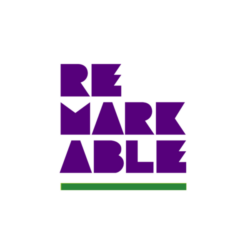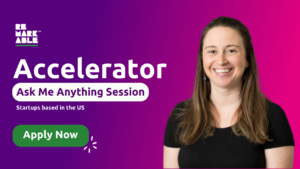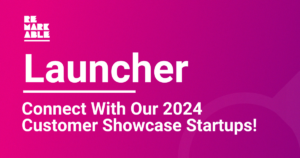Transcript
[00:00 – 00:25]
Remarkable acknowledges the traditional custodians of the lands on which we are gathered today, and we pay respects to the elders past, present and emerging for they hold the traditions, the culture and hopes for the Aboriginal and Torres Strait Islander peoples across the nation. And we would also like to acknowledge the advocates who played a role in advancing the rights of people with disabilities, leading to address the inequalities faced by people with disabilities.
[00:25 – 01:03] Viv
When you think of climate change do you think of the disability community? In the following episode we are joined by Professor Sébastien Jodoin, director of the Disability-Inclusive Climate Action Research Programme to talk about how his life in academia and law, combined with his experience of multiple sclerosis has inspired his passion for researching the intersection between climate change and disability. We’ll discuss why people with disabilities aren’t considered in climate change justice conversations, and why this needs to change – as we look to the future of a truly innovative, accessible and inclusive approach to tackling climate change, from both a tech and policy perspective.
[01:03 – 01:16] Viv
So lovely to have you with us today. To start these conversations what we like to do, because this will also be a video podcast, is invite our guests to do a visual description of themselves.
[01:16 – 01:30] Sébastien
Sure, I’m a white man. I have no hair. I’ve just turned 40 and I am standing in my living room because it’s in the evening here in Montreal, so I’m home.
[01:31 – 01:54] Viv
Again a big thanks for coming on the show and you’ve got a pretty impressive resume and career to date and I’m not even gonna try and summarize all the things you’ve done. But if you wouldn’t mind giving that a go and just sharing a bit about what it is that you currently do and, if you’re comfortable, how exactly that’s been shaped by your experience of MS?
[01:54 – 04:27] Sébastien
I’m a law professor at McGill University in Canada. Prior to that I worked as a human rights lawyer and was also active in the field of climate change. I started working on disability and climate change a few years ago and that was really tied to my experience of having multiple sclerosis.
So I was diagnosed with MS in October 2015 and I had pretty aggressive case in terms of the onset, so I was lucky actually because I was diagnosed right away in the emergency room in the hospital. I remember after they gave me the diagnosis I turned to my wife and the first thing I said was ‘okay this is going to be a beautiful challenge’. I had no idea what that meant, I didn’t know anything about this illness or how to manage it but I had this idea, of like knowing who I am, I was like alright I’m going to put ‘my everything’ into this. I’ll end up working on health care or disability and whatever. So that was my early bounce back internal resilience in that context.
And in the summer I realized that I was basically intolerant to heat. So 65% of people with MS will have these various symptoms when it’s really hot outside. In fact they used to diagnose people with MS by putting them in hot baths to see if it would trigger some of those symptoms. So basically before MRIs that’s what they did, they used hot baths. And what it does is it triggers a number of things; can make you more tired, it can blur your vision and you can also feel these like tiny little electric shocks along the side of your like back of your head, along your spine. They’re not like painful but they’re a sign of like your nervous system is not you know functioning properly. So anyway I’m in July in Montreal where it’s very hot and humid and you can describe it as a hot bath and I’m like thinking to myself okay so this problem that I’ve been working on for my whole adult life, climate change, I suddenly am affected by it in a different way than others. And basically from there it was just much easier to start thinking about how I could bring my work to disabling climate change but for the most part I ended up moving my research towards the field of disability and climate change.
[04:28 – 04:44] Viv
When we look at climate change and we hear numbers about slight increases and decreases to the temperature of the climate and the atmosphere. Although they’re small, it might be one degree up one degree down, what is the impact of just that one degree when we’re talking about disability?
[04:45 – 07:02] Sébastien
I mean the one degree is sort of a global average and really what it represents actually, and what it leads to, is it’s actually that you’ll have these severe weather events. You’ll have more cyclones, they’ll be more powerful. You’ll have more droughts. You’ll have more heat waves.
The way in which people with disabilities are affected by climate change as resulting from three things.
Their exposure to different impacts.
They are sensitivity, so like what in your body might you make you more sensitive to different types of impacts. People with schizophrenia are very heat intolerant and they typically are the people who die at the highest rate actually in heat waves around the world. So they have actually the highest death rate per proportion of what their share of the population is.
And then finally there’s a deck of capacity. That’s the personal connections, the family, the community, your access to services, the assets that you have – all of the things that you need to cope with climate impacts. And here what we can see is, number one, that sort of people with disabilities face a number of barriers in society and that diminishes through adaptive capacity. So if you’re living in poverty you might have less access to say air conditioning in the context of a heat wave. But I think most importantly and most distressing what we see actually is a failure on the part of governments to have accessible responses to ensure that people with disabilities are resilient in the context of impacts of climate change. So if I’m thinking of something in Australia that we saw with the bush fires last year and there were reports of a lack of evacuation to move people who were wheelchair users or who had like complex medical needs like requiring continuous medical equipment. There was nothing in place to move these people, the shelters were inaccessible. Ultimately the vulnerability of people with disabilities to climate impacts is not something that’s natural, it’s actually the result of failure to include them in these policies, these programs and a broader failure to address all the barriers that they face in society.
[07:02 – 07:07] Viv
What are some of the exciting things coming out of this space that disability advocates are driving?
[06:39 – 08:56] Sébastien
I would say the the people on the ground who are really pushing for basically inclusive responses are the first people that, when I was reaching out to people in the disability community, these were the first people who were like ‘yeah, okay I get it. We’ve been working on this but from a different angle’.
But then on the flip side, we’re talking about how do you cope with climate risks, on the flip side of this, when we’re looking at efforts to actually reduce carbon emissions and make our societies more sustainable, there’s a lot of experience and know-how in the disability community about how to do this in an accessible way.
So I actually always like to say that the disability activists that have been pushing for transit systems to be accessible are climate activists. They perhaps sometimes don’t think of themselves in this way but I think if you’re trying to make it easier for people to use a transit system, you’re making it possible to reduce our reliance on cars that run on fossil fuels. When we’re designing these systems in an accessible way it not only benefits wheelchair users, it benefits a huge group of users. If you are for instance installing elevators in your subway system this will benefit the elderly which are a growing share of the population in the West. It will benefit people who maybe are injured that week. It will make it way easier for parents with strollers to use that system. So anytime that you’re making things more accessible for a group based perhaps on their impairments and their experience with disability you’re actually also creating all sorts of opportunities for other users to benefit from those designs.
[08:56 – 09:08] Viv
When you talk about going to these policy makers with this hard evidence with the work you’ve already done, are you seeing the urgent response that you are hoping for?
[09:09 – 11:03] Sébastien
I guess I should say I speak to both policy makers but also climate activists. So there is a lot of ableism in the climate movement itself. I have to say I understand because honestly before I had MS it never occurred to me that linkages between disability and climate change. It never occurred to me, a two to three hour demonstration walking through the streets of the city might not be accessible to a whole bunch of people. I was one of those people who would ride their bike to work and I would look at the people driving and think my God these people are misguided and they’re just they’re just part of the problem. Then my first year with MS actually I had difficulty walking so I had to drive to work and that experience actually was transformative for me because I was kind of thinking like okay so I need a car to get around right now and I had to come to terms with that but it brought me to a space of empathy to basically be like okay so maybe these other people, what do I know about these people’s lives? What structures? What pressures are they facing? What impairments do they have? So it actually brought me into a place of empathy and which I then later discovered is really important in the literature on inclusive design as well. So trying to understand how people use something and why and putting yourself in their shoes.
So I think that there’s still a lot of work to be done in the climate movement around the people who are the typical people climate activists. There are still a lot of things that they don’t know about disability, even though there is more and more disabled people who are climate activists as well.
[11:04 – 11:50] Viv
I work in the disability tech space and so I’m constantly surrounded by this excited energy. But I also know that when I step out of my work bubble and I chat with people that aren’t working in this space they’re kind of like, ‘Wow that’s great. What a niche, I never knew that existed’. And I go well your phone exists, your laptop exists, the internet exists and that started from this really cool place of people with lived experience of disability innovating and designing and creating solutions that are part of everybody’s day-to-day life. Which is what you talk about when you say inclusive design is better for everyone. If we’re thinking big and bold here, when we look to the future of climate change and how that really involves people with disabilities, what are some of the things that you think technology could help with if we’re dreaming big?
[11:50 – 15:49] Sébastien
If you don’t mind I’ll start with with a story.
Which is that you know I started by saying that I ended up working on disability and climate change because I realized I was intolerant to heat, but the story doesn’t end there.
Basically what happened after that was I started thinking ‘Okay what can I do about this?’ because I had read this book of someone who had MS and they said ‘Yeah in the summer I stay inside’. And that wasn’t something that was acceptable to me, especially with having a small kid and loving to be outdoors. So I kind of started thinking surely someone has solved the problem of how you stay cool in the summer when it’s hot. And actually my first thought was of mascots at Disney World in Florida. My thought was these people are in super hot costumes in July in Orlando what do they do? So I started researching basically the niche world of people who are mascots and I discovered that they wear these cooling vests and I eventually sourced basically this cooling vest for myself. So basically it’s like a vest and you put inside this sort of liquid that freezes at four degrees celsius. What’s cool about that is, well cool sorry for the pun, but it keeps your body cool for three hours. So I was sort of you know walking around in July and August in those in those periods of time wearing these cooling vests, they were like my assistive device if you will and I was perfectly fine. And as I was sort of doing this and people would be like ‘what is that?’ And like menopausal women we were like ‘oh my God, like I need that’. And it occurred to me actually that if you know possibly everyone will need these vests if our summers are averaging 40 degrees and we still wanted we don’t you know right now the advices stay home being in air conditioning, drink water or whatever but I’m guessing that people are gonna still want to be outside and so we’re going to have to adapt and design innovative solutions.
So my little story about the Icevest is sort of building on that I think in a way the people who are most affected now by climate change, so people with disabilities, we are already sort of constantly in our lives having to come up with solutions, having to innovate. I like to think that people with disabilities are masters in resilience, we have to navigate a world that’s not been designed for us and find all of these tips and these tricks and these things to get through life and be happy and be employed and all these things. And I think sometimes it’s interesting, like the pandemic you know, teleworking all the people that I knew who had disabilities who were completely used to working from home really like there was not much of an adjustment for us. We already were used to doing things you know part time remotely or whatever. So I think actually what I would love for governments and also companies that design products like leisure wear companies, athletic companies, like these companies should be figuring out how people will exercise in the future or when it’s really hot and the people they should turn to are people with disabilities. We’re the ones who right now are facing the most severe impacts of this crisis and we’re coming up with solutions because we’re not just you know going to stop going outside. I just don’t think that’s the sort of approach that most people I know have instead we’re just constantly trying to find tips, tricks, strategies to and innovating and developing solutions.
[15:49 – 15:58] Viv
At the end of these conversations I like to invite all of the guests to share an insight and a remarkable insight to be a bit punny.
[15:58 – 17:30] Sébastien
I guess I’ll say I’m relatively new to the disability world and I’ve had the good fortune of meeting a number of experienced disability activists and one of those people is a colleague who helped me sort of start the program. I remember her name is Yolanda Munos and she’s been involved in the disability rights movement for decades and I remember saying she said something to me early on when we were working on this project she said ‘You know Sebastian they’re not going to invite us to the table, like we’re just going to have to show up and ask for a place at the table’ and I realised “Yeah that’s always been the case right the very foundations of the disability rights movement were people showing up and asking for their rights and asking for changes to infrastructures and policies and programs’.
So I think really as much as I think that the climate movement and climate policy makers haven’t sort of thought through how they could be more accessible to people with disabilities. I think honestly those of us who have disabilities, we also just need to show up because they’re not just going to randomly invite us, they’re not going to randomly have insights about ‘oh yeah we should make this accessible’. We’re going to have to ask for that and so yeah that’s I guess my insight is basically that we’re going to have to show up, they’re not going to invite us to the table.
[17:31 – 17:42] Viv
The full interview with our guest can be found in the link below where you pressed play on this podcast – our show notes. Make sure you subscribe or hit follow to not miss another Remarkable insights episode.
DOWNLOAD A WORD VERSION OF THE TRANSCRIPT HERE.
Watch the full video recording of this podcast here.
Connect with Prof. Sébastien Jodoin on LinkedIn and learn more about Disability Inclusive Climate Action Research Programme.





